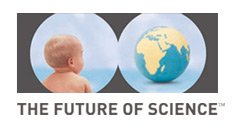Hillard S. Kaplan

Hillard Kaplan's scholarly career has focused on empirical research and theory development designed to explain unique features of human behavior and physiology, and their evolutionary origins. His early research investigated food sharing and resource exchange among some of the few remaining traditional groups that subsist by hunting and gathering, or on a mix foraging and rudimentary horticulture. This research program was followed by another, which centered on the determinants of fertility and parental investment in both traditional societies and modern developed nations. The latter half of his career has synthesized these two research directions and produced a general theory of human life history evolution that directs his current empirical research on aging and longevity, inter-generational transfers, and social organization. He currently co-directs the Tsimane Health and Life History Project, which focuses on behavior, health and aging in 85 villages in lowland Bolivia. The project investigates infectious disease, immune function, and cardiovascular health as they change with age, and their relationship to economic productivity, psychological well-being, and family relationships.
Lifespan extension in human evolution: Intelligence, Inter-generational Transfers, and Health in Old Age
This talk begins by reviewing shifts in brain size and longevity in the primate lineage, and presents evidence that middle and old age are a common part of the life course in human groups without access to western medicine. A theory about why intelligence and longevity have co-evolved in the hominid line is then presented, followed by a detailed documentation of age-profiles of skills, knowledge and productivity in hunting and gathering groups. The data show that men and women remain net producers until about age 70, the modal age at death for traditional populations, with significant downward transfers to descendants. They also show that men and women adjust their time use as they age, adapting to physical decline. The talk concludes with a discussion of intergenerational transfers from old to young, health in middle and old age, and implications for modern health and longevity.





